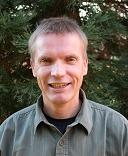Geoscience

Associate Professor
Geoscience
Abbotsford campus, A406m
Phone: 604-504-7441 ext. 4123
email ScottMy education includes a BSc in Geology (Dalhousie), a Diploma in Remote Sensing (College of Geographic Sciences), a MEng in Surveying Engineering (University of New Brunswick) and a PhD in Renewable Natural Resource Studies (University of Arizona).
I have also worked or done research in the GIS/remote sensing industry in Arizona, California, Colorado, Switzerland, and British Columbia. I also spent a year and a half in rural Japan.
Based upon my research and industry experience, I have incorporated the most important workplace-related GIS-related skills into my courses, while exposing students to a wide-range scenarios in which these skills are used, such as geomorphology, demographics, planning, crime studies, forestry, conservation and other disciplines.
GIS skills are transferable and I believe that this interdisciplinary approach provides students with the flexibility to leverage their GIS expertise to a variety of diverse situations in the workforce or in research.
The core GIS courses I have designed and teach are integrated within the GIS Certificate Program at UFV. GEOG 253, GEOG 353, and GEOG 454 are essentially introductory, intermediate and advanced GIS courses while GEOG 453 focuses on related earth observation technologies.
The GIS certificate culminates in GEOG 458 which teaches students how to design, implement, manage and report a GIS-themed project of their own choosing.
As a remote sensing/GIScientist my research is focused on mapping and understanding the physical-human environment. Given that the mosaic of landscapes on the earth is continually changing from both anthropogenic and natural causes, I am interested in understanding the extent of these changes and their impacts on our world.
My current research has been focused on the impacts on freshwater within urban environments, including a recently completed 4-year research grant in which I trained and worked with citizen scientists across Metro Vancouver to monitor spatial and seasonal impacts on our streams and creeks.
For more information, view the full geography blog post.
My research in Vancouver was connected with similar Earthwatch-funded research done by colleagues in the Americas, Europe and Asia. The following publications describe my local research in Vancouver as well as related research I contributed to as part of an analysis of citizen scientist data collected in North, Central, and South America.
Shupe, S.M. 2017, High resolution stream water quality assessment in the Vancouver, British Columbia region: a citizen science study. Science of the Total Environment 603 (1): 745-759.
Loiselle, S.A., Cunha, D.G.F, Shupe, S., Valiente, E., Rocha, L., Heasley, E., Belmont, P.P., Baruch, A. 2016. Micro and macroscale drivers of nutrient concentrations in streams in South, Central and North America, PLOS One 11(9): 1-16.